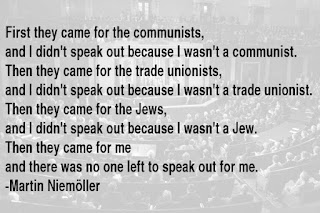Do the Thing
I’ve developed a guiding philosophy: “do the thing.” Everyone has a “thing.” There is something, some activity, that drives you and fills your soul with joy. You don’t necessarily need to do it for a living. Your passion doesn’t have to be your paycheck. It might be teaching, or nursing, or painting, or playing a sport. For me, it’s acting.
I am an actor. I don’t get paid, at least not yet, and maybe never, but I am an actor. In one sense I am new at this. I’ve only been on the stage plying my craft since early last year. But, in a more fundamental sense, I’ve always been an actor. I literally cannot remember a time when I did not want to act for a living. My mom tells a story of us watching TV when I was small — maybe four years old. I saw a character get shot, and asked her if he was dead. She explained that the character was dead, but that the person was pretending, and when the camera stopped, he would get up and go home to his family. From that moment on, I knew what I wanted to do with my life.
All through Junior High and High School, I took Drama classes and competed on the forensics team — sort of acting with your feet stapled to the floor. My “plan,” for lack of a better word, was to move to Orlando after graduation, get a job at Disney’s Universal Studios, be discovered, and BAM: working actor. As you are doubtlessly aware, moving halfway across the state is far easier said than done. So, I languished in dead-end, minimum wage jobs for a while, and eventually enlisted in the Air Force. For the five years prior to my enlistment, and the twenty years I served, my dream was shelved — relegated to occasional daydreams. After retirement, I eventually enrolled here at Thomas Nelson as a theatre major in the Fall of 2017.
In March of 2018, I debuted as Dr. Bradman in Noel Coward’s Blithe Spirit, here at Thomas Nelson. In the past two years, I have auditioned for and been cast in four different productions, and I have never in my life been as consistently happy as I have been these past two years. If you don’t know what your thing is, find it. You may not see a path to doing your thing. You may not be capable of devoting time and resources to it at the moment. That’s ok. Just, whatever you do, don’t let go of the thing. Shelve it if you must, but don’t give up entirely. Find your thing, and do it.
I am an actor. I don’t get paid, at least not yet, and maybe never, but I am an actor. In one sense I am new at this. I’ve only been on the stage plying my craft since early last year. But, in a more fundamental sense, I’ve always been an actor. I literally cannot remember a time when I did not want to act for a living. My mom tells a story of us watching TV when I was small — maybe four years old. I saw a character get shot, and asked her if he was dead. She explained that the character was dead, but that the person was pretending, and when the camera stopped, he would get up and go home to his family. From that moment on, I knew what I wanted to do with my life.
All through Junior High and High School, I took Drama classes and competed on the forensics team — sort of acting with your feet stapled to the floor. My “plan,” for lack of a better word, was to move to Orlando after graduation, get a job at Disney’s Universal Studios, be discovered, and BAM: working actor. As you are doubtlessly aware, moving halfway across the state is far easier said than done. So, I languished in dead-end, minimum wage jobs for a while, and eventually enlisted in the Air Force. For the five years prior to my enlistment, and the twenty years I served, my dream was shelved — relegated to occasional daydreams. After retirement, I eventually enrolled here at Thomas Nelson as a theatre major in the Fall of 2017.
In March of 2018, I debuted as Dr. Bradman in Noel Coward’s Blithe Spirit, here at Thomas Nelson. In the past two years, I have auditioned for and been cast in four different productions, and I have never in my life been as consistently happy as I have been these past two years. If you don’t know what your thing is, find it. You may not see a path to doing your thing. You may not be capable of devoting time and resources to it at the moment. That’s ok. Just, whatever you do, don’t let go of the thing. Shelve it if you must, but don’t give up entirely. Find your thing, and do it.


